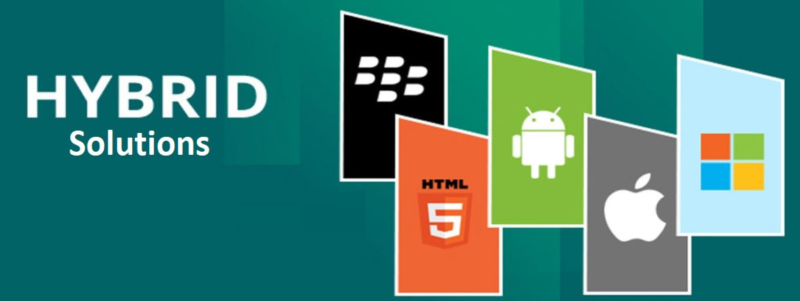In-house Brand Development vs. Third-party Marketing: What's better?
Looking conventionally, brands have seldom ever stuck with just one agency.
We have always seen them approaching many to handle their key marketing functions that include media buying, data analytics, and creative development. Now, we're seeing a lot of businesses looking around to build their own internal teams that can handle at least first two functions, and therefore save them a ton of money while improving the quality of their results, drastically.
More than 80 per cent of businesses have been seeking to increase their control over programmatic media campaigns, which proof enough of how bringing programmatic media buying in-house has been garnering special focus for marketers. Even a few huge brands, such as American Express and Procter and Gamble have shifted their spending on programmatic ads, in-house.
One of the biggest motivations has definitely been the need for greater efficiency; but more so, it's been the need to play a bigger, more comprehensive, and a rather active role in taking their own digital decisions.
They want to cut out the digital marketing agencies that basically act as the middleman and instead work directly with different platforms, such as Facebook and Google. Companies know well that this will be a great way for them to save costs. Above everything else, such a step would help companies exert greater control over the digital experience of their customers, as well as the user data they'd be able to collect, firsthand.
Who's winning? And who's losing?
The ones who are seeing a stall in their growth, are some of the well-established ad agencies and networks, like Publicis and WPP. On the other hand, Accenture, Deloitte, and other such top consultancy firms are seeing their revenue increase, and hence clearly winning.
As they leverage their role of being trusted advisors to the C-suite, they're gradually becoming the partner of choice to companies who seek to build the capability to run their own internal digital campaigns.
By acquiring the services of professional digital marketing company, businesses are able to get sound advice on how they can build the technology stack needed to ensure the best customer experience as well as maximize the benefits of the user data that these companies are collecting.
How does a business make the right choice?
One-size-fits-all solutions are a thing of distant past. When one sets to design a mix of external and internal resources for a company, it takes a solution that is tailored for them. Businesses can opt from an array of owned, outsourced, as well as hybrid models that are based upon the scale of brand programming, and also the level of support provided.
There are certain key questions that C-Suite leaders should surely ask when they're out to determine what goes and doesn't go in their mix of external and internal resources. They are:
- Which functions are better handled internally, and for which ones should a third party digital marketing company be hired to take responsibility?
- What is the projected cost of creating as well as the maintenance of the selected group of marketing capabilities? In comparison, what do the projected savings look like?
- To lead and handle your digital marketing processes in-house, you would need the right talent. Can you manage to get that for your business?
- As you build your in-house capability, you will also need to work on your company's technology infrastructure. What kind of investment would you be looking at, to ensure a successful evolution of your business?
There are definitely a lot of marketing functions which can be internally executed, in a successful manner by brands. But, when it comes to certain creative services, there are specific agencies out there that need to be trusted. The role of external agencies, therefore, should not be overlooked. They play a huge role in amplifying the brand experiences of users while providing companies with a point of view which inspired by a string of unique experiences across both clients and categories.
Hybrid solutions might be the only solutions
For a company that brings certain marketing functions in-house, there are sure shot advantages; but, the biggest fear is, a company should never overestimate the amount of efficiency they'd be achieving, as a result of taking this step. The cost of developing as well as maintaining a digital marketing process internally would be a great cost-saver, and it would also help a company know their users much better. But, the expectations of businesses should be realistic when they assess the readiness of their organization to execute marketing functions successfully, from both the standpoints - cultural, and technical.

They have to remain flexible while considering their options as they define their own mix of external and internal resources.
To ensure that they make the right decisions for their brand, and ultimately their end customers, brands should be ready to take help from digital consultants. With a proper direction, they can not only bring more and more marketing processes to function internally but do so with proper planning, the right training of their staff, building suitable technology infrastructure; and by integrating with third-party digital marketing agencies, they can ensure successful execution of their in-house marketing campaigns.
Related Posts
To make your business successful in the modern age, you need to excel at digital marketing and have a strategy that can allow you to beat out the competition.
In the ever-changing digital marketing landscape, defined by transient attention spans akin to ephemeral specters, the strategic use of video has proven to be an alchemical concoction, flawlessly transmuting mere curiosity into a passionate embrace of customer interaction.
Core Web Vitals is a set of performance metrics developed by Google to measure the quality of a website's user experience.
It’s certain the people you look up to the most in your professional life qualify as thought leaders.
Task management is usually busy and tricky, whatever sphere it touches on.
Technology is an essential part of every company - no matter what business you're in. Here are some examples that prove this.

















Comments
comments powered by Disqus